Engagement History
City Council Public Hearing (June 23, 2020)
On January 28, 2020, City Council directed Administration to proceed with the preparation of Zoning Bylaw changes to enable Open Option Parking in one step across the city. These changes were approved by City Council at the June 23, 2020 Public Hearing (item 3.22) and come into effect on July 2, 2020.
Edmontonians and stakeholders had an opportunity to provide feedback on the report before it was finalized. They were also given a final opportunity to express their opinions about the proposed changes directly with members of Council by registering to speak at the Public Hearing.
Urban Planning Committee (January 28, 2020)
On January 28, 2020, City Administration presented a report to Urban Planning Committee which contained:
- One-step and phased options for implementing open option parking. Open option parking will allow homeowners and businesses to decide how much on-site parking to provide on their property to serve visitors and customers.
- A comprehensive review of the on-street parking implications of changing on-site parking rules.
- Further research on predictors of parking demand.
Urban Planning Committee directed Administration to proceed with implementing Open Option Parking in one-step, across the city, and return to the June 23, 2020 City Council Public Hearing.
Draft Regulation Options Survey
In February 2019, the City released a draft recommendation report that looked at different options for regulating parking in Edmonton. This included:
- Minimum parking requirements, where the City determines a set number of parking spaces that must be provided
- Open option parking, where businesses and homeowners can choose the amount of parking they provide
- Maximum parking requirements, where the City sets an upper limit on the number of spaces that can be provided
Over 4,100 Edmontonians provided their input on the options presented in the draft recommendation report via an online survey that was conducted in February 2019.
The information we heard from Edmontonians was used to update the report to address common concerns prior to the report advancing to the May 7, 2019 Urban Planning Committee meeting (item 6.1).
View the What We Heard report.
Parking Trade-offs and Outcomes Survey
The City conducted a survey about the trade-offs and priorities around parking, as well as who should be responsible for making decisions about how much on-site parking is provided with new homes and businesses.
In addition to an 800-person phone survey, an online version of the survey was open for feedback between Wednesday October 17, 2018 and Monday November 19, 2018. The survey results outline Edmontonians values and priorities related to parking.
Engage Edmonton Events
Edmontonians were invited to share their voices and help shape our city by attending one of the family-friendly Engage Edmonton drop in events, which ran from Thursday October 11 to Thursday November 15, 2018. The feedback from these events is being reviewed and the results of the engagement will be shared in a council report in the first half of 2019.


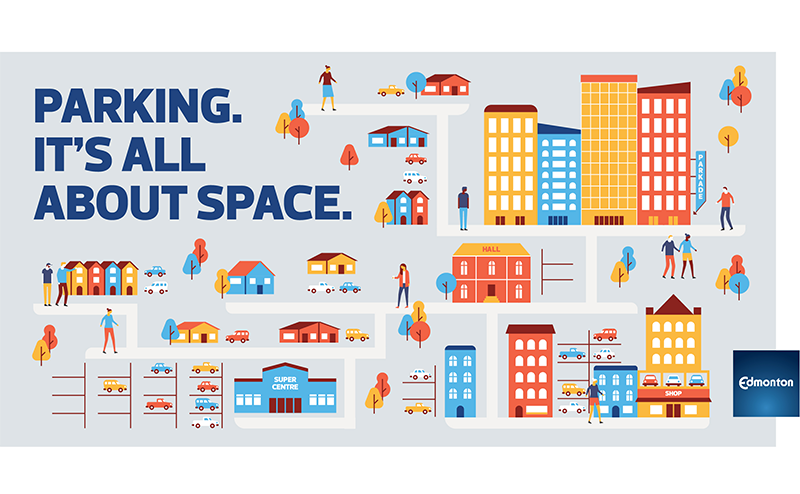
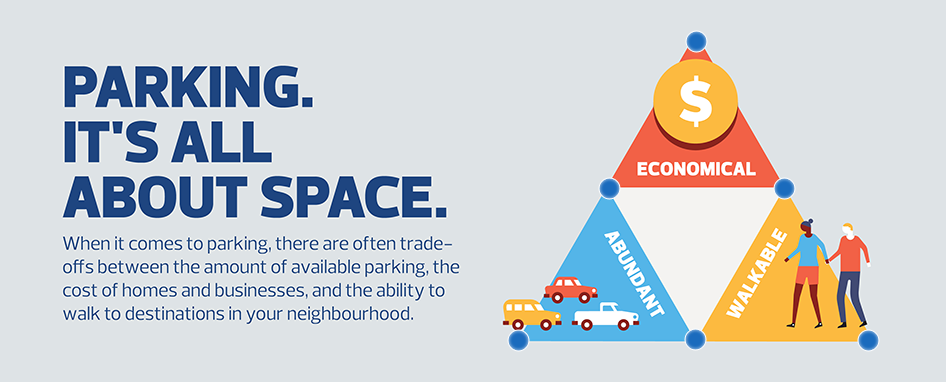
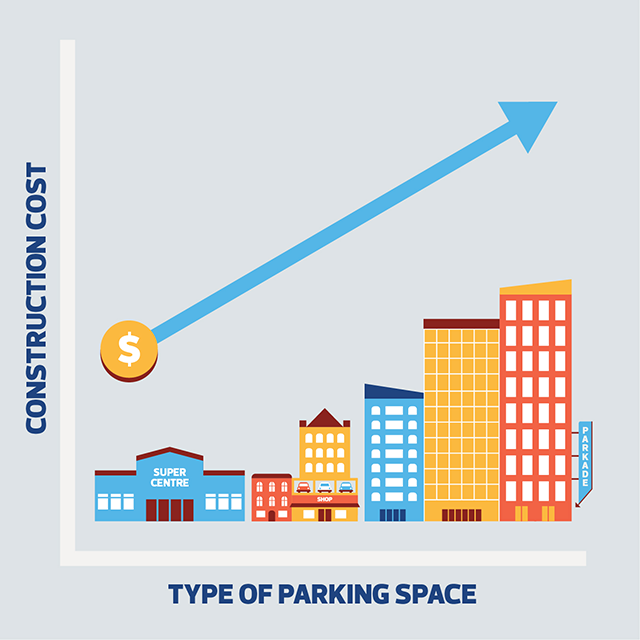

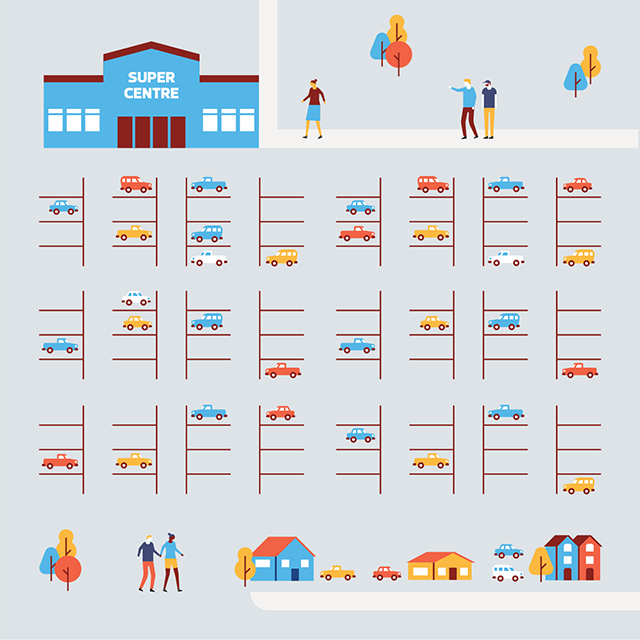
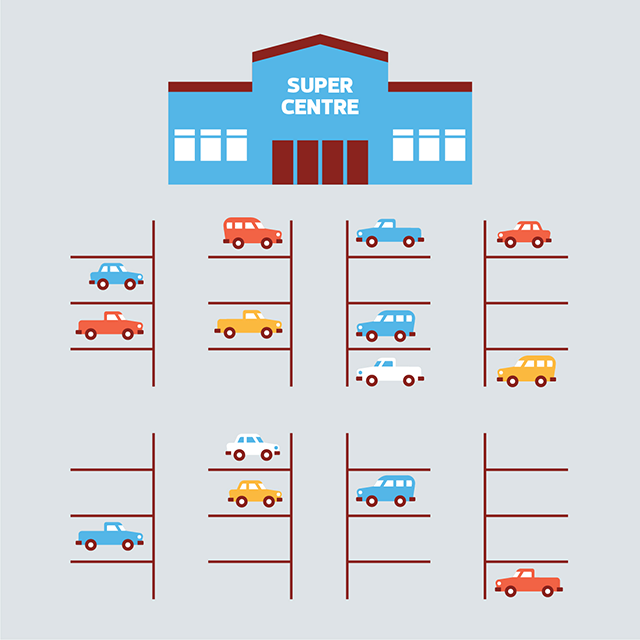


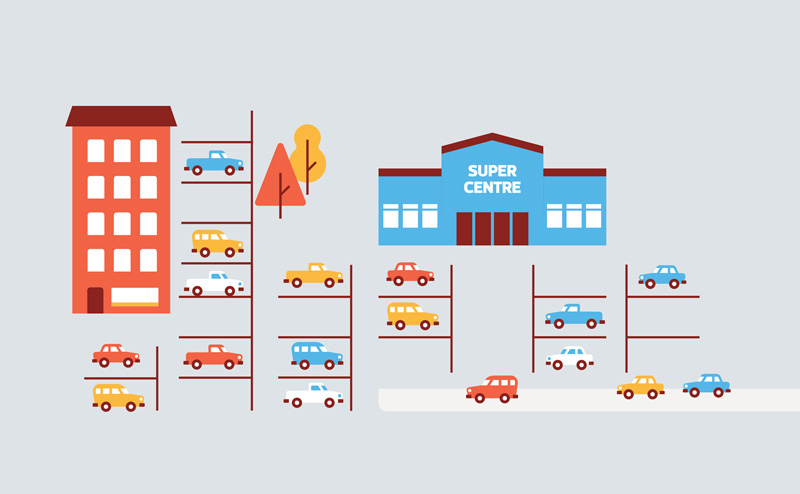
 Businesses and homeowners can choose the amount of parking they provide.
Businesses and homeowners can choose the amount of parking they provide.